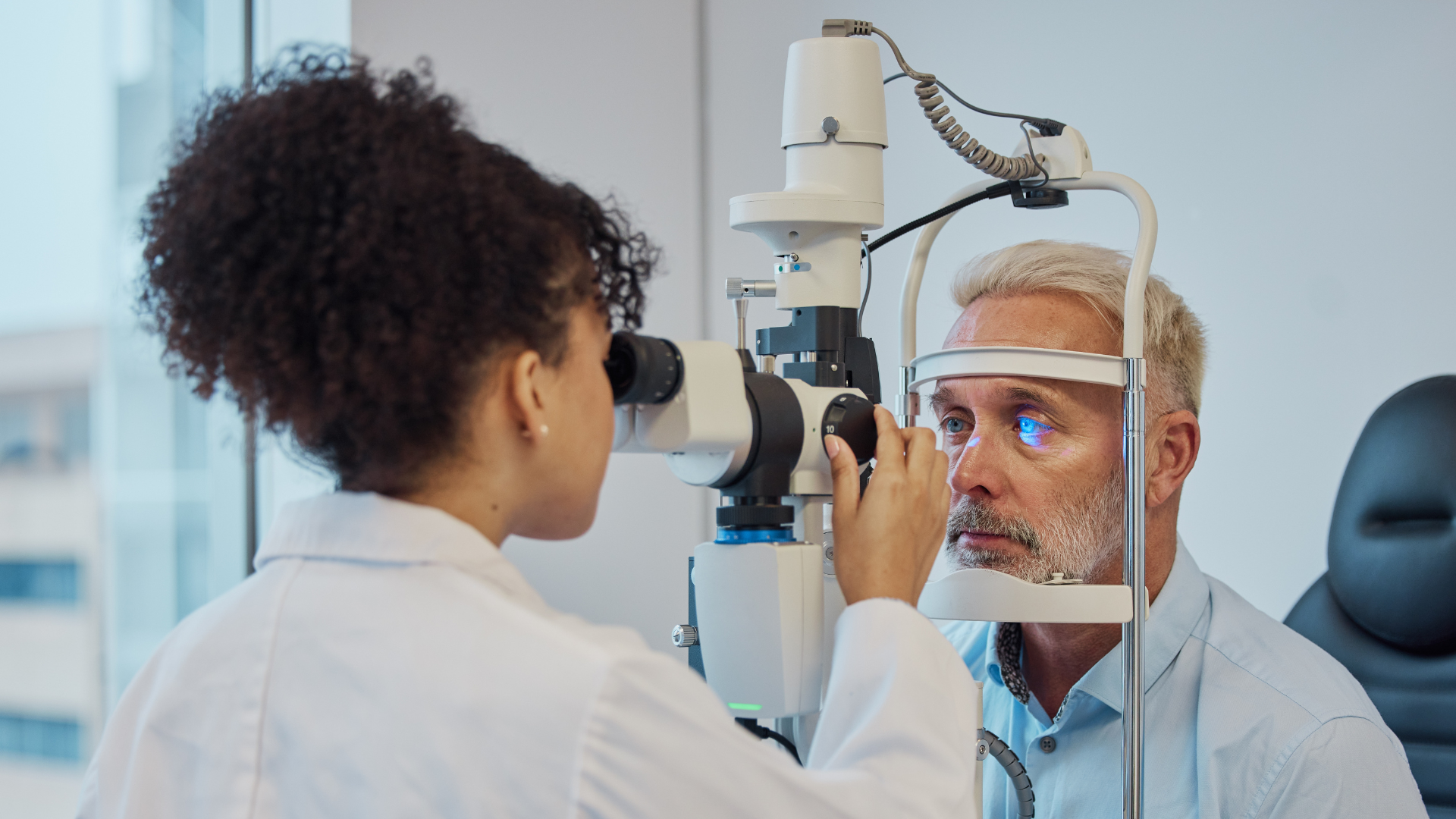
What do do when diagnosed with AMD
Receiving a diagnosis of macular disease can be overwhelming, you will likely have lots of questions about how it may impact you, what you can do to help protect your vision and what you need to do now. OcuPlan are here to support you every step of the way. We believe in empowering patients with knowledge and guiding them toward proactive measures for their eye health. We want you to know that you are not alone, as well as the support that OcuPlan can offer there are various resources and charities to provide you with any help that you require.
The diagnosis experience for patients living with AMD often varies. You may have been told by your optometrist or consultant ophthalmologist that you have early signs of AMD. Maybe you already noticed changes in your vision before you were diagnosed?
Through working with the Macular Society, OcuPlan has been fortunate enough to attend various support groups and conduct patient surveys on the diagnosis experience. We learnt that the diagnosis experience for AMD patients is largely inconsistent. This is down to the volume of people with signs of AMD and the lack of time the optometrist has to talk about the condition to provide all the information required. The survey concluded that 55% of patients experienced symptoms or sight loss before diagnosis and many patients felt they were uninformed on the condition.
In light of this, to assist you in managing your condition effectively and to help you in learning about the condition and next steps, we have prepared a comprehensive to-do list.
Seek Expert Advice
Schedule an appointment with an eye care specialist, such as an ophthalmologist or retina specialist who specializes in macular disease. They will provide you with a detailed understanding of your condition, answer your questions and guide you on the best course of action.
Here are a few things we’d recommend before having the appointment with your optometrist or ophthalmologist:
It is clinically advised that people living with a long-term eye condition should be monitored by a consultant ophthalmologist at least once per year. With OcuPlan we ensure that our patients are seen often enough and receive the advice needed to help protect their sight.
Learn about your condition
Educate yourself about your macular condition such as the causes, symptoms and available treatment options. Reliable sources such as reputable medical websites and organisations such as the Macular Society can provide you with accurate information. OcuPlan also provides a comprehensive guide on dry AMD when signing up to the Free Sight Support service. You can learn more here.
Understand your treatment options
Depending on the specific type and stage of macular disease, your consultant may recommend various treatment options, such as intravitreal injections (this is typically for wet AMD). Ask your doctor or consultant about potential risks, benefits and expected outcomes for any options.
Follow your consultant’s recommendations
If you see a consultant and are provided with a treatment plan. Ensure that you stick with it. Attend all follow-up appointments and undergo any necessary tests. Let your optician or your consultant know if there are any changes or concerns with your vision.
Additionally, with OcuPlan, you can see the same consultant for continuity of care and peace of mind.
Monitor your vision regularly
Be attentive to any changes in your vision, such as blurriness, distortion, or dark spots in your central field of vision. It is useful to keep an Amsler Grid available, somewhere easily accessible such as your fridge door or by your front door so you can check your vision frequently. You should be monitoring your sight once per day. If you notice any irregularities, speak to your optician or consultant as soon as possible.
Practice good eye care habits
Adopt healthy lifestyle habits that promote overall eye health. Protect your eyes from excessive sunlight by wearing sunglasses with UV protection. Follow a balanced diet rich in antioxidants, vitamins and minerals. Avoid smoking as this can exacerbate macular disease.
Seek emotional support
Receiving a diagnosis of macular disease can be emotionally challenging. Reach out to your loved ones, friends or support groups for emotional support. Sharing your feelings and experiences can provide a sense of relief and help you cope with the emotional impact of the diagnosis. The Macular Society offers a range of services that you may find useful.
Explore low-vision aids
If you feel it would help you, inquire about low-vision aids, such as magnifiers, specialised glasses or smartphone apps, which can enhance your visual function and quality of life. Your optician or consultant can offer recommendations and direct you to resources to help to adapt to visual changes.
Maintain a positive outlook
Remember that you are not alone in your journey. Stay positive and focused on managing your macular disease effectively. Resources such as the OcuPlan free service are available for any concerns you have with your vision and charities such as the Macular Society can provide you with much needed support.
At OcuPlan, we are dedicated to providing comprehensive care and support to patients with macular disease. By following this to-do list, you can take an active role in managing your condition and maintaining the best possible eye health. If you would like to learn more about how OcuPlan can help you, please give our customer support team a call on 0207 173 5200 or visit us at www.ocuplan.co.uk
About OcuPlan
OcuPlan offers the gold standard of clinical care for patients with long-term eye conditions to help minimise the risk of sight loss.